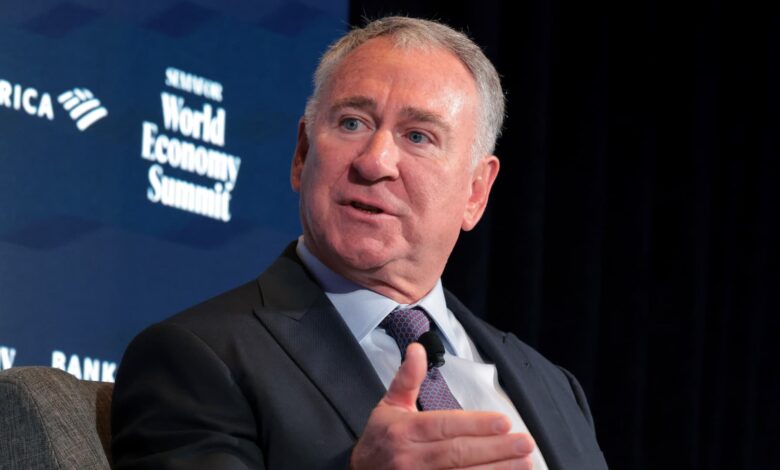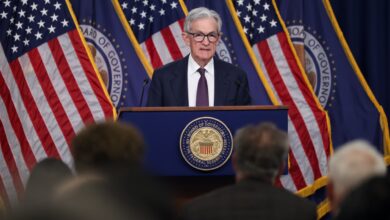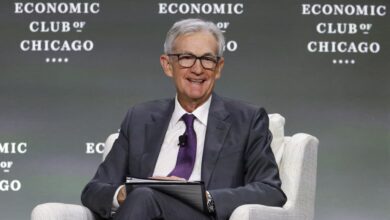Griffin calls tariffs a ‘painfully regressive tax,’ hitting working class the hardest

Billionaire Ken Griffin, the CEO of Citadel hedge fund, recently spoke out against President Donald Trump’s punitive tariffs and their impact on working class Americans. In an interview on CNBC’s “Closing Bell,” Griffin expressed his concerns about the regressive nature of tariffs, likening them to a sales tax that disproportionately affects those who are already struggling to make ends meet.
Trump’s aggressive tariff policies have caused significant volatility in the stock market, with steep levies imposed on imports from various countries. While the president has announced a temporary pause on some tariff increases, China remains a focal point of the trade war, with tit-for-tat tariffs being imposed between the two nations.
Despite being a supporter and donor to Trump’s campaign, Griffin has been critical of the president’s trade strategy, warning that it could tarnish the image of the United States and have negative repercussions on the economy. He emphasized the importance of managing inflation, particularly in the lead-up to the midterm elections, as it will be a key factor in determining the success of Trump’s economic policies.
Griffin also highlighted the risk of stagflation, a scenario where high tariffs lead to both inflation and economic stagnation. The success of Trump’s economic program, which includes trade reforms, tax cuts, and deregulation, will be crucial in determining the future trajectory of the economy.
In a recent article in The Wall Street Journal, Treasury Secretary Scott Bessent outlined the three-pronged approach of Trump’s economic plan. Griffin echoed the sentiment, questioning whether these measures will be enough to stimulate the growth needed to sustain the economy in the coming years.
As the country navigates through uncertain economic waters, Griffin’s insights provide valuable perspective on the challenges and opportunities that lie ahead. With his expertise in the financial sector, his commentary serves as a beacon for investors and policymakers alike, shedding light on the complexities of trade policy and its far-reaching implications.





